How to calculate calories (to lose or gain weight) Illustrated Guide


How do I calculate the calories I need? Habitually, when we start a diet or start a training routine, we overlook the number of calories we need to consume to stay healthy and energetic.
Similarly, although we do not practice any demanding physical activity, we also ignore the importance of calories in our body. In this new article, you will learn how to calculate the calories your body needs to reach the desired weight.
Many people are unaware of the importance of calories; some of them don't even know what they are, remember that calories are the units of energy that the body acquires through food and drink; in other words, everything we ingest.
Our body needs calories in order to function optimally because, without them, our organism would not have enough strength to perform physical tasks; that is, without enough calories, we would feel weak and exhausted most of the time.
However, this does not mean that we will need to consume large amounts of calories. Like all things in excess; it is harmful and brings negative consequences to the body, if we ingest large amounts of calories, we will gain weight and gather many adipose tissues in our body.
This not only damages our physical appearance, but it also affects our health, for it, we will explain certain aspects based on concrete investigations, the necessary points that you must take into account to maintain your ideal weight; of the equal form if you want to increase or to lose the desired kilos and to continue healthily.
- How to get the ideal weight (diet, calories according to height).
- The ideal weight of the woman according to height
- How to calculate calories in order to lose weight or gain weight regarding our height and weight.
- Nutritional value of the most common foods with their corresponding calories.
- Conclusion
How to get the ideal weight (diet, calories according to height).
Calories are a term based on units of measure, meaning that they are governed by various factors that affect our bodies. This means that depending on how much food we eat, the calories will affect us differently.
Similarly, also depending on our height and age, these will behave one way or another.
To achieve an ideal weight we always recommend a balanced and healthy diet. In this link, we leave you a variety of healthy and highly recommended diets.
For a better understanding and clarity about what we are talking about, we will now present a graph that reveals what would be the ideal weight we should have to maintain good health and the desired shape with respect to our height and age.
The ideal weight of the woman according to height

| IDEAL WEIGHT FOR WOMEN ACCORDING TO THEIR HEIGHT | ||
| HEIGHT | WEIGHT | |
| 1,50 cm | 40,5 kg - 51,8 kg | |
| 1,52 cm | 41,6 kg - 53,1 kg | |
| 1,54 cm | 42,7 kg - 54,5 kg | |
| 1,56 cm | 43,8 kg - 56,0 kg | |
| 1,58 cm | 47,4 kg - 59,9 kg | |
| 1,60 cm | 48,5 kg - 61,4 kg | |
| 1,62 cm | 49,9 kg - 63,0 kg | |
| 1,64 cm | 53,8 kg - 67,2 kg | |
| 1,66 cm | 55,1 kg - 68,9 kg | |
| 1,68 cm | 56,4 kg - 70,0 kg | |
| 1,70 cm | 60,0 kg - 72,5 kg | |
| 1,72 cm | 62,2 kg - 73,4 kg | |
| 1,74 cm | 63,5 kg - 75,8 kg | |
| 1,76, cm | 68,1 kg - 76,0 kg | |
| 1,78 cm | 69,7 kg - 78,0 kg | |
| 1,80 cm | 71,1 kg - 83,0 kg |
First of all, you have to know that the weight increases by 0.05 kg depending on your height. That is to say: If you are 1,50 cm tall you will have to weigh at least 40,5 kg. But if you measure 1.51 cm you must weigh at least 41.0 kg.
Also if you are 1.52 cm tall, you must weigh at least 41.5 kg. Each centimetre is 0.05 kg extra.
Similarly, age will be influential because as you grow older, you will need more weight to develop muscle and energy potential. If you are 18 years old until the age of 25, you should maintain an average weight between 45 kg and 65 kg. This if you are between 1.60 cm and 1.70 cm tall.
If you are short; 1,50 cm, you will have to maintain a balanced weight to your height, that is to say, no more than 55 kg given that it will be considered overweight.
On the other hand, there are many cases in which women manage to reach 1.80cm and even beyond. For these heights, a minimum weight of 70 kg and a maximum of 85 kg are recommended. Remember that height plays a crucial role in weight.
As an informative fact, it is presented that the more muscles you gain and develop, the more calories you will spend and you won't have to worry about how much you need to lose. Your own body will take care of ensuring you a better healthy balance.
How to calculate calories in order to lose weight or gain weight regarding our height and weight.
As we have said before, calories are the unit of measure that seeks to let us know the amounts of fat and energy we are acquiring with each food we eat.
As it is their product, we must bear in mind that it will depend on the amount we consume; the more food we eat, the more calories we will gain and, on the contrary, if we do not ingest amounts of food, we will not obtain any calories.
However, this is not entirely true. There are several factors that affect how many calories we would gain or lose.
To all that we must take into account that depending on our height and weight, we must maintain, lose or gain calories with respect to what was previously seen in the graph. Next, we will explain in more detail what we mean:
To achieve the desired body without harming our health, we will need to know the number of calories we should get or release from the body.
There are 5 types of levels of categories in which a person is considered at the physical level; that is, their frequency in carrying out some corporal activity.
These types of activity are:
- Sedentary: All those people that their physical activity is almost null.
- Light: Usually called to all those who keep it sitting in a chair or standing for many hours.
- Moderate: Those people who practice some physical activity, either at home or in some routine.
- Intense: Generally all housewives, those who practice sports or are constantly in a gym.
- Very intense: The highest branch, applies to all those who are doing a routine or a specific sport. Basically it is for that person who performs 150 minutes of exercise daily.
Calories to consume to lose weight if you lead a sedentary life
This graph is oriented to all those women who are sedentary; that is to say, that we do not practice any type of physical activity nor do we exercise in any way.
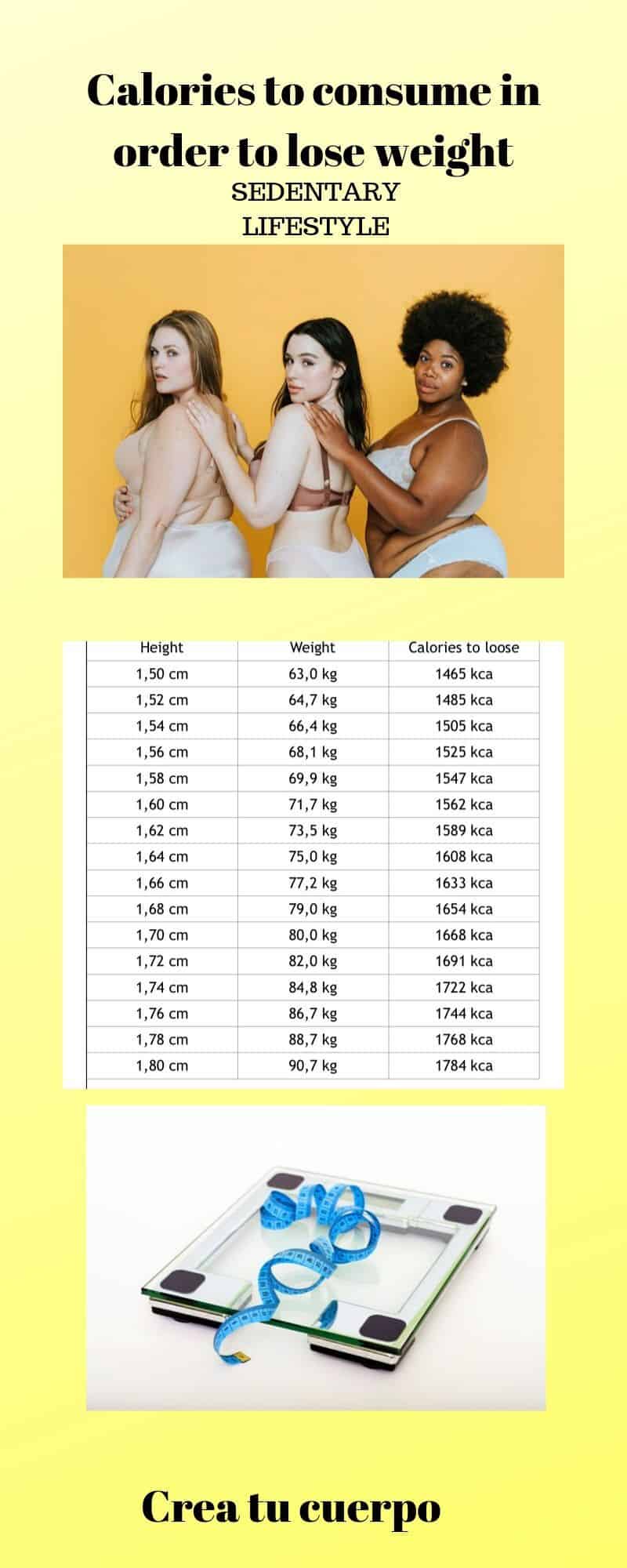
Calories to consume in order to lose weight if you do moderate physical activity
The following graph is oriented towards women who engage in some type of physical activity; or practice a moderate type of exercise.
If you normally have a sedentary life, we help you to have a moderate activity doing exercises at home.
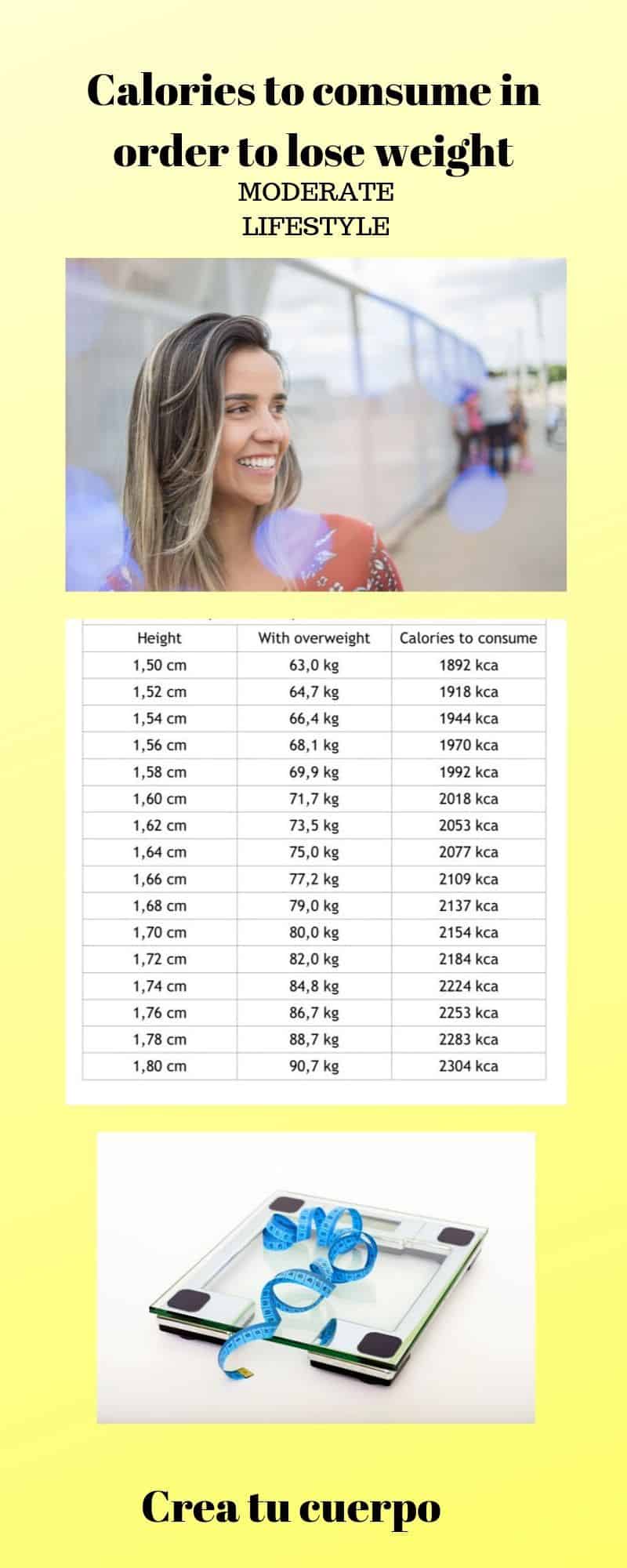
Calories to consume in order to lose weight if you carry out an intense activity
As can be seen in this graph, all those that perform daily physical activity, including household chores, such as at work or moving objects, tend to be considered a routine of physical demand, but if it is done constantly every day, it should be borne in mind that here enter the exercise routines such as walking, running and moderate exercise in a gym, dumbbell lifting and rope jumping.

As stated above, you can appreciate the noticeable difference in terms of calories ranging from a sedentary woman to one with a habit of intense training.
For sedentary women, the level of calories to consume would be about 1465 for shorter women and 1784 for taller women. While those who do a very intense workout, their calories to consume would be about 2319 for the smallest in height and about 2825 calories for the tallest.
Now if not, if we want to gain weight, we leave several tables below to help us determine how many we need to consume.
Calories to consume in order to gain weight while living a sedentary life
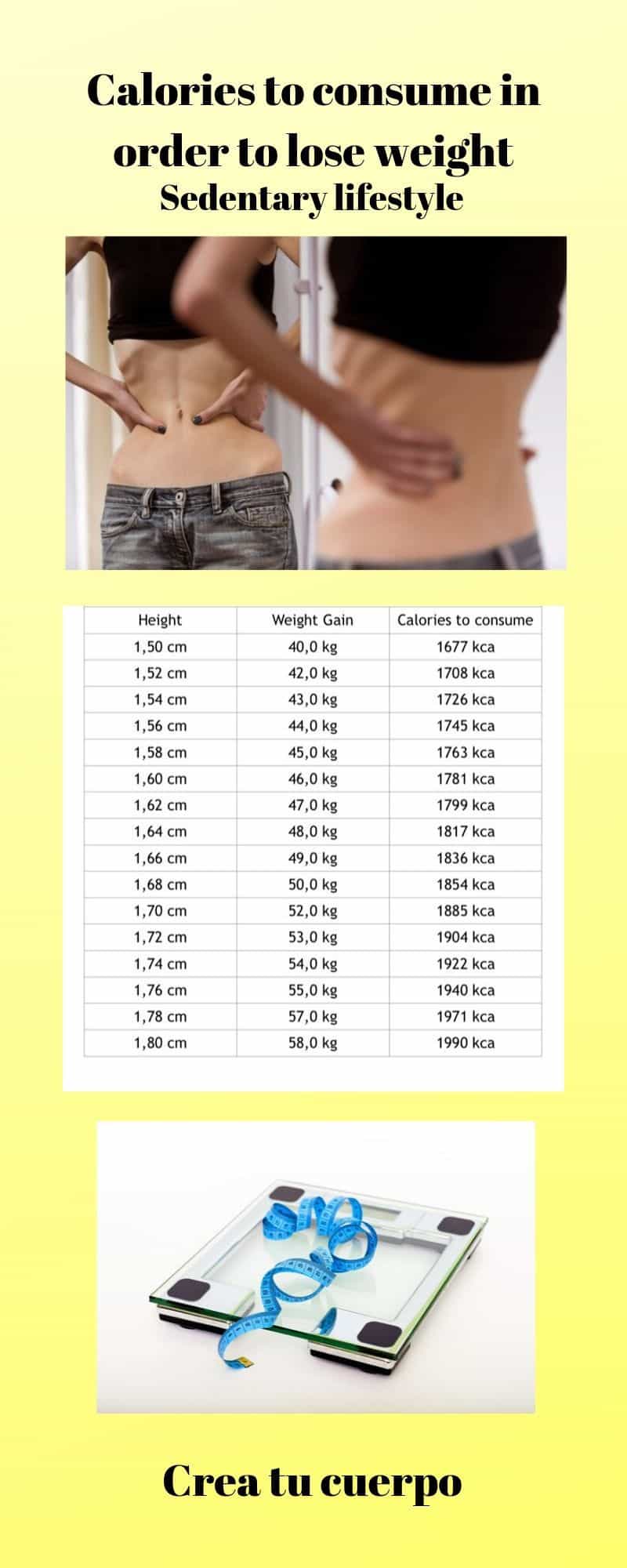
This graph shows the calories to be consumed by a sedentary person, i.e. a woman with relatively little physical activity.
Calories to consume in order to gain weight doing a moderate activity
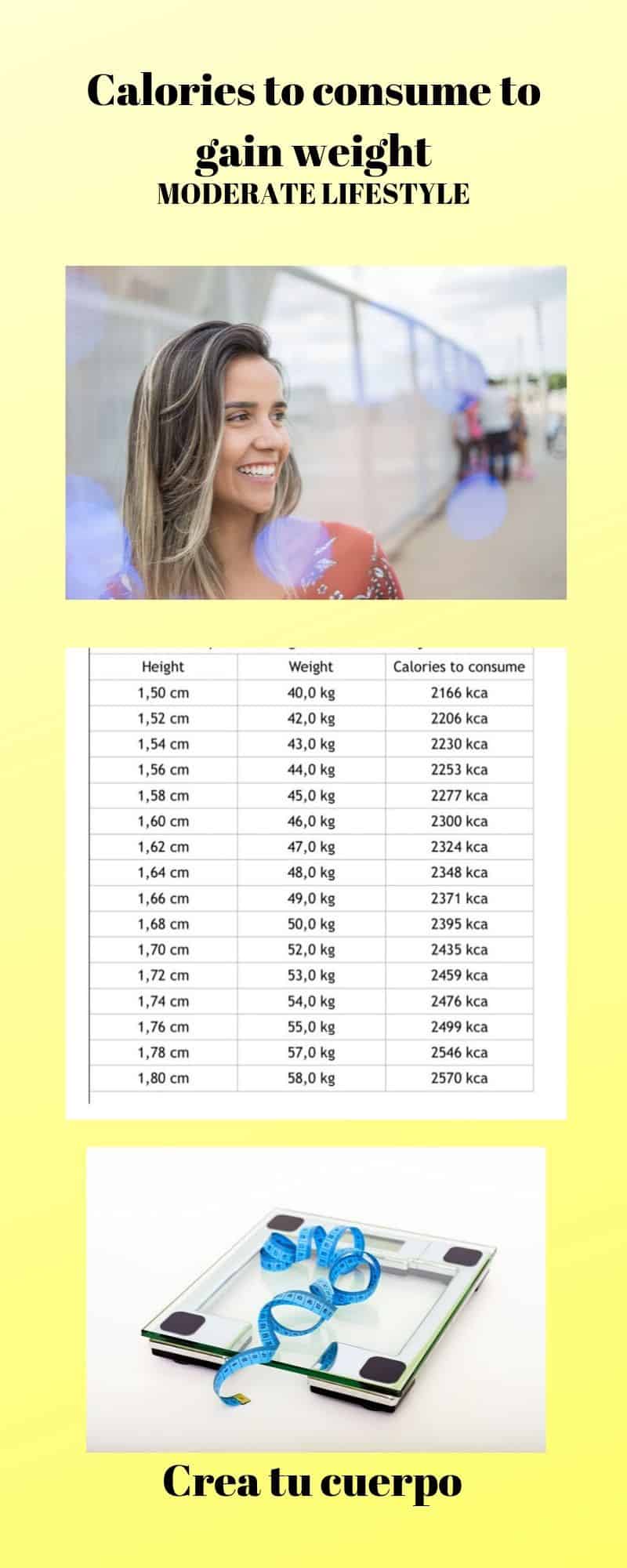
The last graph shows the number of calories you should consume if you practice a moderate exercise activity; that is, you walk or run from time to time. It also applies if you are sitting most of the time.
If you lead a sedentary life, you can have a moderate activity doing exercises at home as we teach you.
Calories to consume in order to gain weight if you have an intense physical activity
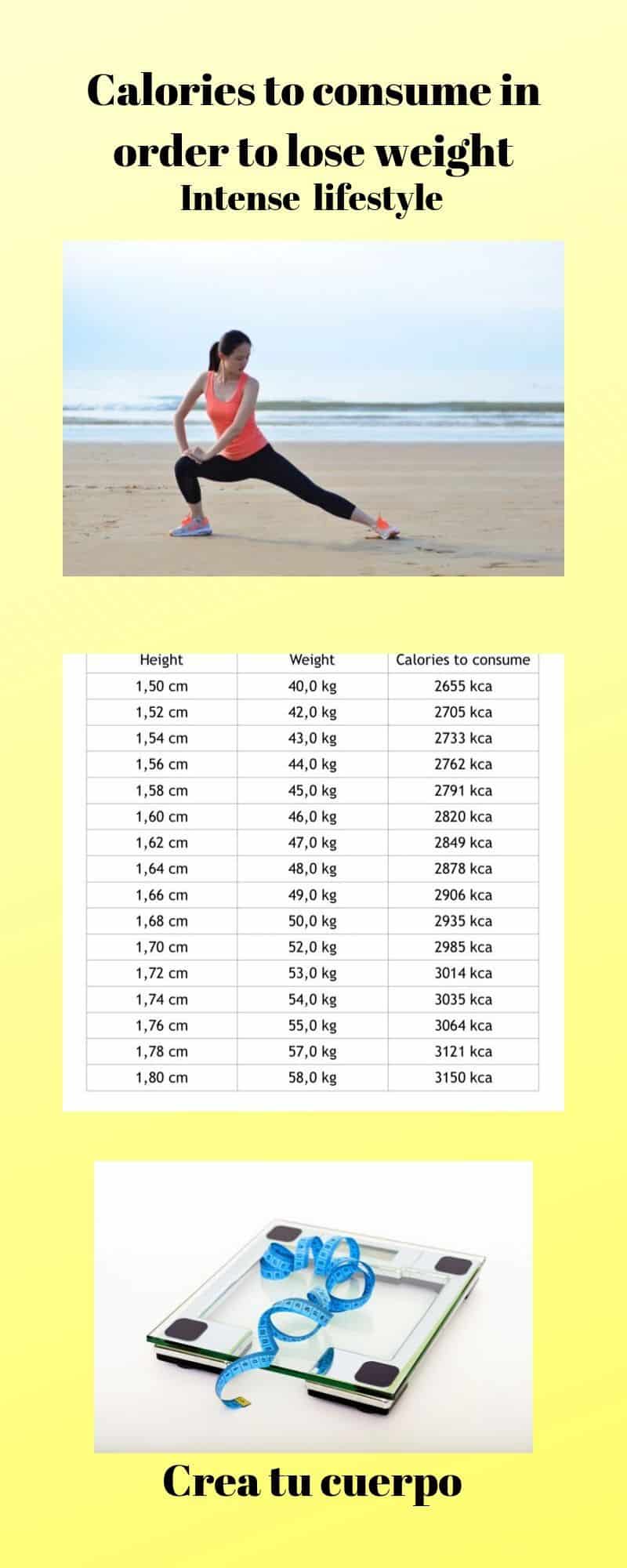
In this last graph, you can see the calories you should consume if you are following a specific exercise routine; or if you are a housewife who lives in constant work.
It is emphasized that all these data are focused on using an average woman of about 20 years of age, in order to better obtain the data presented.
Nutritional value of the most common foods with their corresponding calories.
Next, we'll introduce you to the heating units that bring with them some of the most commonly consumed foods. These foods, depending on the type, will bring different amounts of energy that your body absorbs, if you consume more, you will gain weight.
We will start with the most common and generally most consumed foods:
Calories from junk food
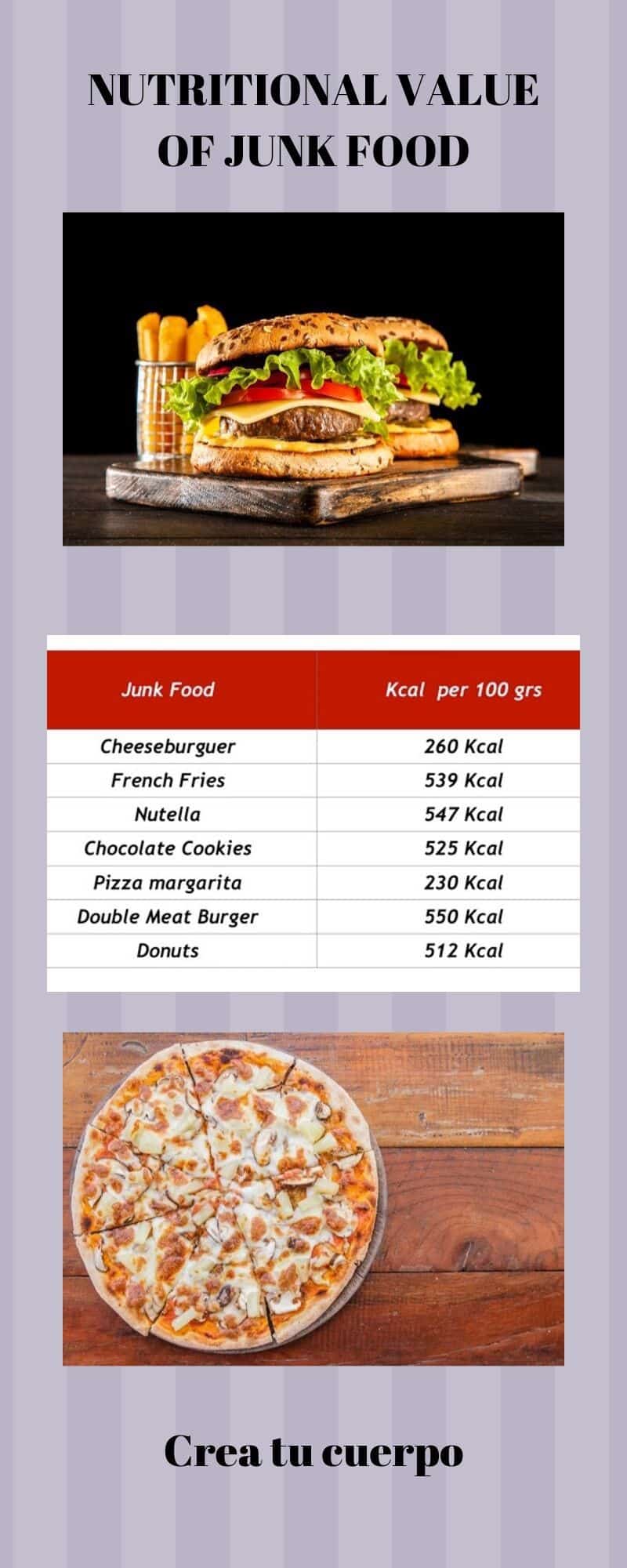
Nutritional value of meats
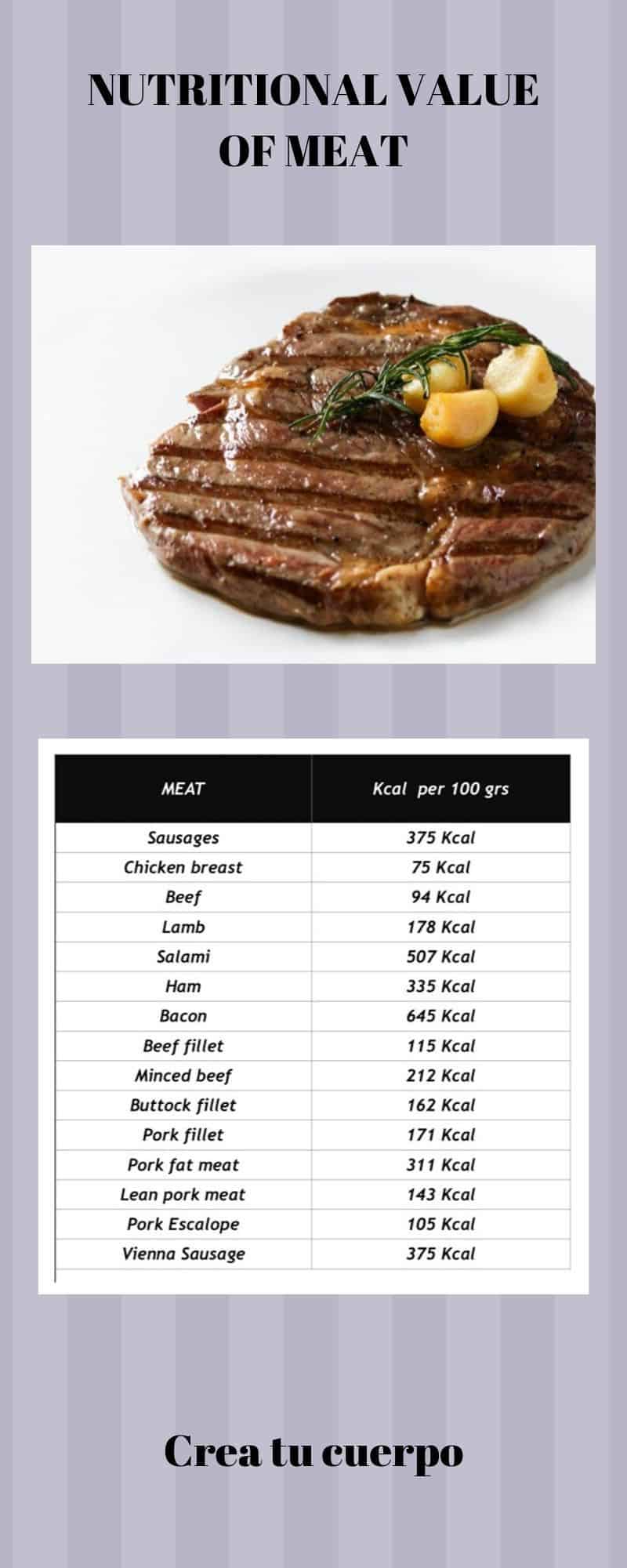
Calories from bread
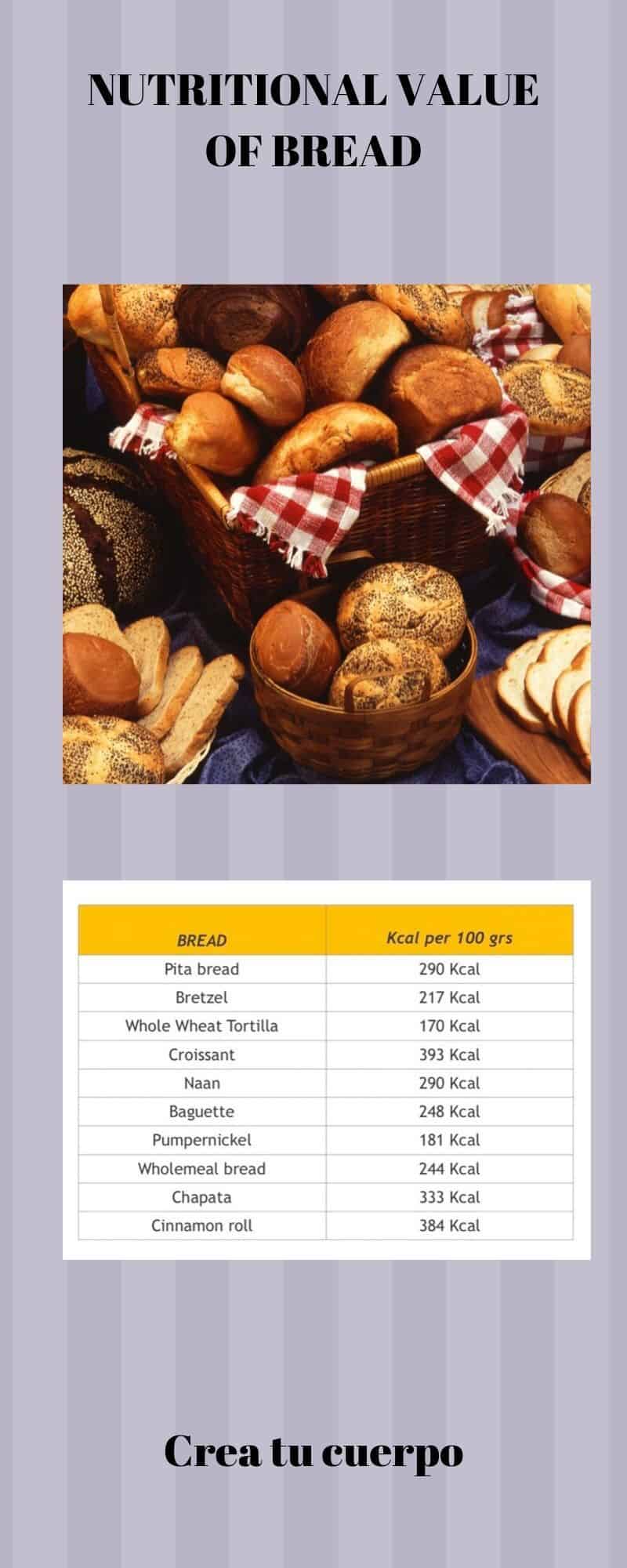
Nutritional value of vegetables

Calories from fruits
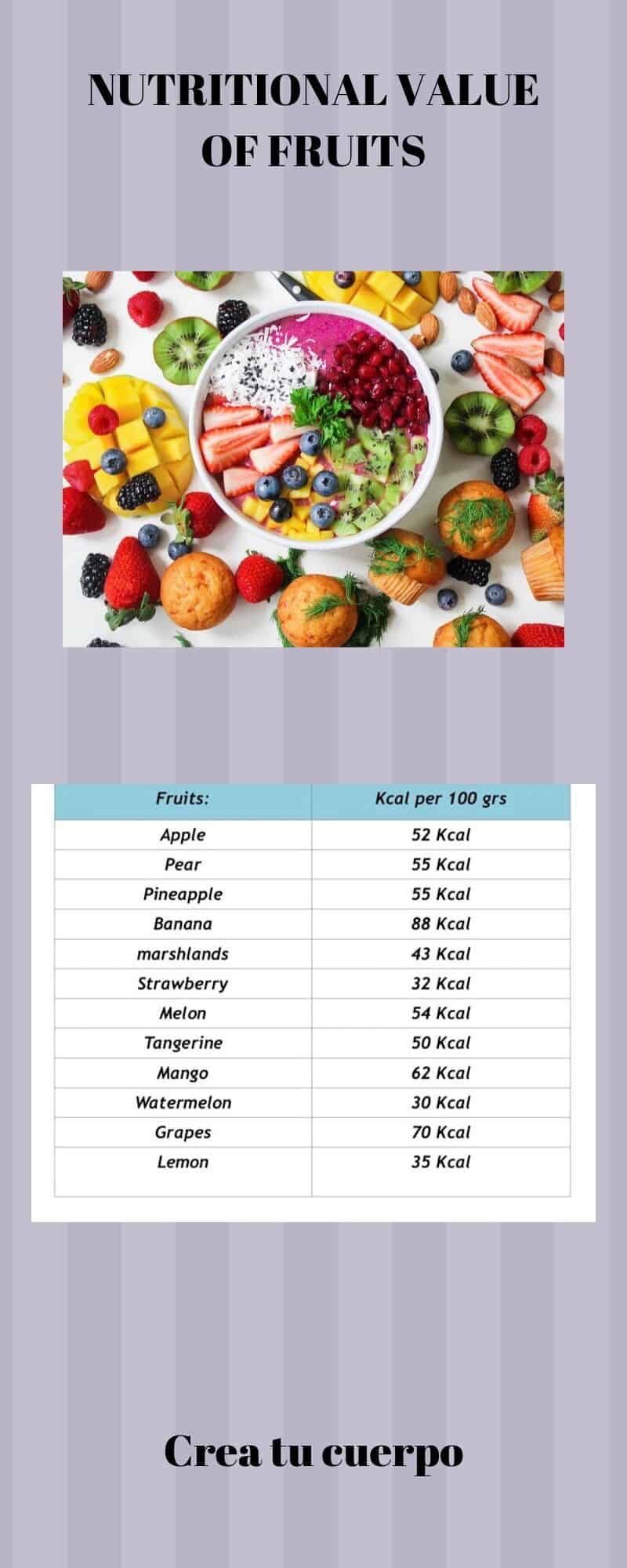
Cereals, on the other hand, are rich in fiber and depending on their producers, the number of calories they bring will be different from the others. However, the average value of cereals, generally around 378 Kcal.
Conclusion
As we often do in our articles, we detail that each one of us has a different body and organism; that is why we will behave and react in a totally different way to other women.
These aspects must be taken into account in order to determine our ability to lose weight or develop muscles. In addition to the factors that intervene in our environment, such as emotional, sentimental, stress, in other elements that negatively affect our body.
Similarly, it is emphasized that in one week, even if you consume more than 3,500 fewer calories than you need to maintain your weight (which will be half a kilo: 0.5 at the end of the week), it does not ensure that we will gain or lose these kilos on those days.
This is due to the fact that the habit of life we have will influence the weight we will reach.
However, if we add or decrease something extra to our daily consumption (Example, another 500 Kcal extra) we will notice a significant gain or weight loss.
On the other hand, if we want to lose weight, we must take into account that choosing foods with few calories will help us lose weight more easily. As we saw in the tables, fruits and vegetables with less Kcal, are watermelon and lettuce. Consuming these foods or taking them into account when dieting to lose weight, will bring positive effects to our goals.
These charts and graphs that we have shown you in this article are very accurate. You can also find out the calories you need to consume to achieve your goal on the Harris-Benedict calculator, which is the most accurate available.

You are beautiful but… YOU'LL BE MORE!
